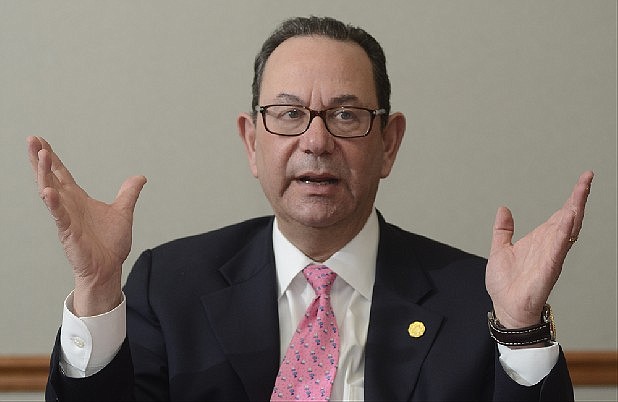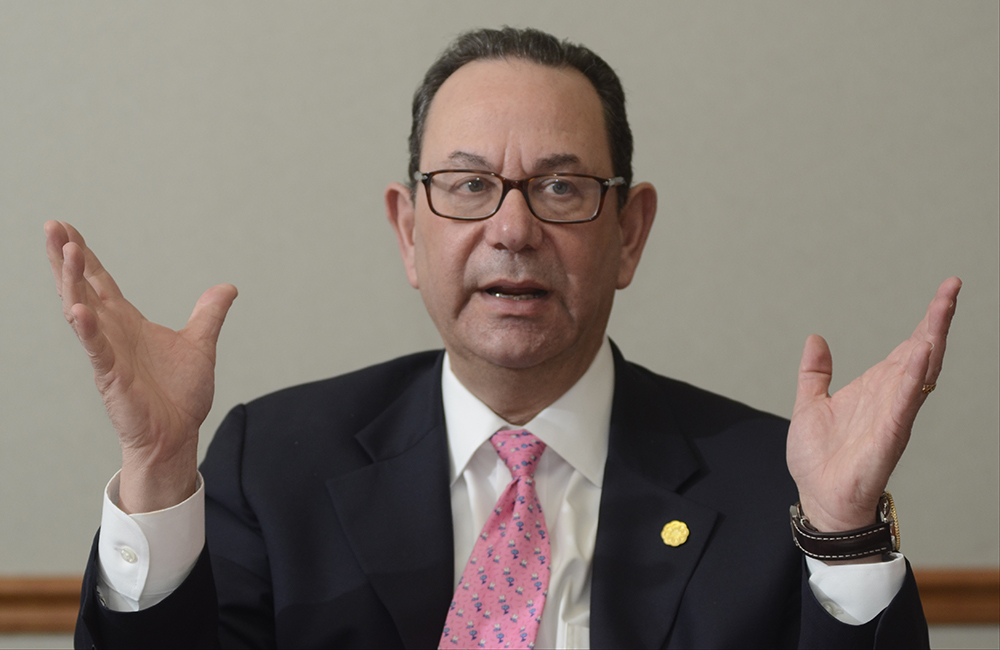Read moreErlanger bonuses anger Tennessee lawmakers, local officials
Just nine months ago, Kevin Spiegel was metaphorically holding up a sign with the words "The End Is Near."
Indeed, the Erlanger chief executive officer said as much in a March editorial board meeting with the Times Free Press.
"It is possible for Erlanger to close," he said. "It just is. Either there's going to be legislative relief, or there's going to be dramatic changes."
The hospital had phased out its employee pension plan, tightened paid time-off policies and will do away with retiree health insurance as of Jan. 1. The public hospital had lost money for three straight years, was running a more than $3.8 million deficit for the 2014 fiscal year, and, it was reported, could keep operating for just 66 days with the cash it had on hand if it lost all sources of cash income.
It was the direst of times, said Spiegel, who joined Erlanger in March 2013.
If this were a political ad, the upbeat music would cue in here, and a voice would describe how things had changed in the country, state or legislative district since Candidate X had taken office.
"It's morning in Erlanger hospital ..."
On Thursday, Erlanger Health System trustees voted to award $1.7 million in performance bonuses averaging $17,100 to 99 managers -- based on a plan that requires the hospital to meet financial and quality benchmarks -- because of the hospital's financial turnaround.
Spiegel received a $234,669 bonus to bring his compensation for the year to $914,669 and got a 10 percent raise for next year. All employees will get a nonbudgeted 2 percent pay raise.
The hospital, thanks in large part to a $19 million infusion of federal money from the Public Hospital Supplement Payment pool, finished the year with $18 million in operating income. The bottom line is never this simple, but if you subtracted the $19 million from the $18 million, you'd have a negative figure.
Without a doubt, Spiegel and his management team worked tirelessly to stem the red ink flow. That's what they get paid for, right? And there's no doubt, the hospital was facing some difficult decisions. A lot of public hospitals are in the same boat.
What's upsetting is that Erlanger's board didn't wait to award such hefty bonuses until a reliable, positive bottom line had been sustained for several years. For years, after all, the hospital has ridden a financial roller-coaster, up $5 million one year and down $8 million the next.
Board member Gerald Webb, the only trustee to vote against the bonuses and Spiegel's new contract, said as much.
"Erlanger has had financial issues for a while," he told Times Free Press reporter Kate Harrison Belz. "For the first time, we're seeing positive numbers. My thinking is that more of a percentage of that money needs to go into reserves or to employees, instead of vice presidents and executives."
Webb also said what all concerned would acknowledge -- that Spiegel has done a great job.
"The hospital is moving in the right direction," he said. "But I would have preferred to see a longer stretch of performance."
Board members and others said even with Spiegel's new pay and the bonuses, the CEO and his top managers still will be paid below market value. The problem is, every CEO who comes to the hospital is paid more than the one before because the board wants the top person available and claims it must pay that much to get that person. And once on board, all CEOs promise to do their best to keep the hospital off the fiscal roller-coaster.
If all things were equal every fiscal year, the board and the public could say for fiscal 2014, "Well done, thy good and faithful Erlanger." But every year is not the same. That's why it would have been better to have waited for a year or two of positive fiscal news to award bonuses or to have awarded much more moderate bonuses or to have awarded the executives the same increase as the rest of the employees.
After all, some hospital employees are paid to dispose of hazardous waste, some to take a patient's vitals and some to make sure the hospital ship stays afloat. If they're all doing what they were hired to do, why should 99 get an average bonusof $17,100 and the bulk of employees be happy they'll have 2 percent more next year?
Spiegel said in March "people may think we've been crying wolf [at Erlanger] a lot." Unfortunately, in December, deserved or not, when the same hospital awards $1.7 million in bonuses, they'll believe it even more.

